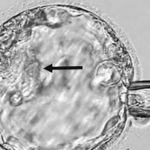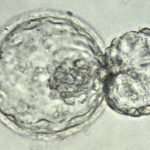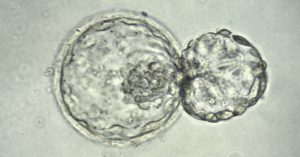Fertility preservation is an important option for many women, and oocyte cryopreservation, also known as egg freezing, is a key method. This process involves growing multiple eggs from within the ovary over a two-week period. After this, an outpatient procedure is performed to retrieve the eggs, which are then taken to the IVF lab for vitrification, or “freezing.” The eggs remain frozen in the lab until the patient is ready to use them. Interestingly, the majority of patients never need or want to use their frozen eggs .
But how long can someone wait to use their eggs? The short answer is indefinitely, but there are several factors to consider.
Why Freeze Eggs?
The primary goal of fertility preservation is to freeze eggs at a younger age than when you plan to conceive. Eggs from a younger person are more likely to be chromosomally normal and lead to a live birth. The process of freezing, maintaining, or thawing eggs does not affect the likelihood of the eggs yielding a chromosomally normal embryo .
Factors Influencing Success
While the chromosomal makeup of the embryo is crucial, there are several other factors that contribute to the success of using frozen eggs:
- Thawing Process: The egg must survive the thawing process.
- Fertilization: The egg needs to be fertilized by sperm.
- Embryo Development: The fertilized egg must develop into a blastocyst.
- Implantation: The blastocyst must implant in the uterus and lead to a successful pregnancy and delivery.
Age and Chromosomal Normalcy
Freezing eggs at a younger age increases the chances of having chromosomally normal embryos. However, even with younger eggs, there is no guarantee that all embryos will be chromosomally normal, or that they will lead to a successful pregnancy and live birth.
What If It Doesn’t Work?
If your frozen eggs do not result in a successful pregnancy, you will need to attempt to conceive at your current age. Depending on your age and other health factors, the prognosis for success may be lower.
Considering Alternatives
While many may never use their frozen eggs, it is important to consider alternative family-building options in case the frozen eggs do not lead to a successful outcome. If you are not open to alternative options, delaying the use of your frozen eggs may decrease your chances of having a live birth from your own frozen eggs.
Conclusion
Eggs can remain frozen indefinitely, but freezing them at a younger age optimizes the chances of success. Understanding the factors that influence the success of using frozen eggs, and considering alternative family-building options, is crucial for making informed decisions about fertility preservation.









